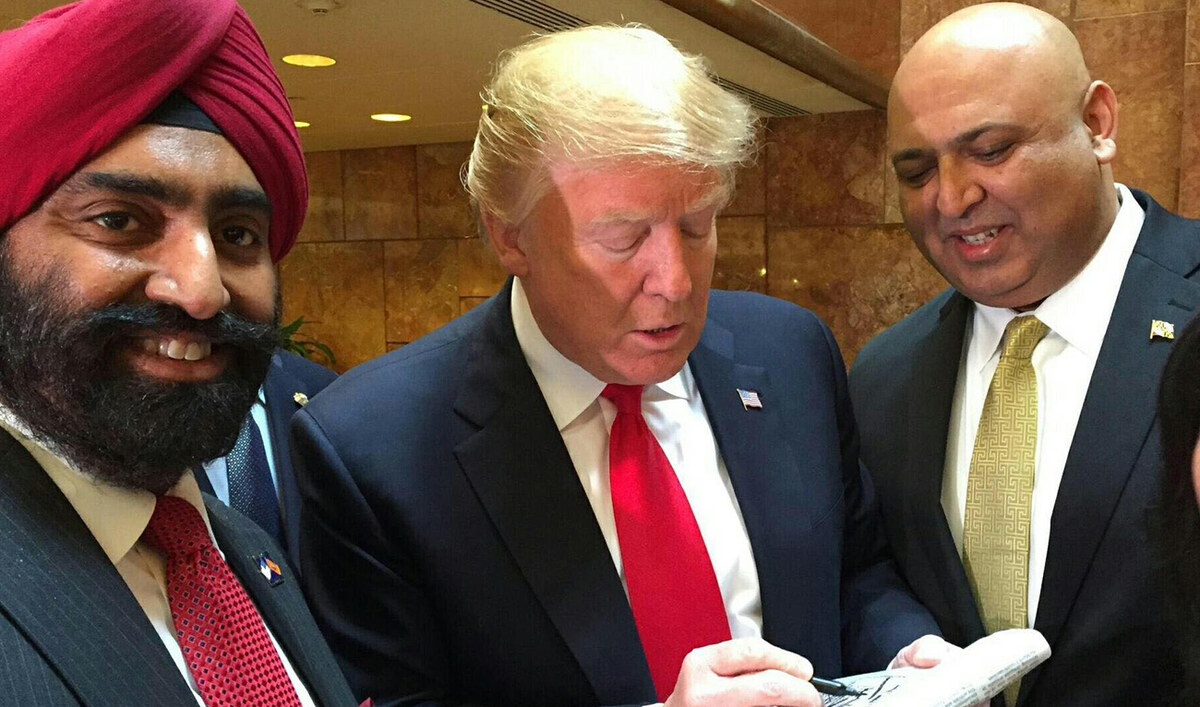ISLAMABAD: Sajid Tarar, a Pakistani-American businessman and close aide to Donald Trump, said on Friday that a few Pakistani-Americans had tried to discuss former prime minister Imran Khan’s imprisonment and local Pakistani politics with the US presidential nominee at a recent fundraiser, but Trump “did not pay any heed to it.”
Khan, who is in jail since last August, was ousted from the PM’s office in 2022 in a parliamentary vote of no confidence after what is widely believed to be a falling out with Pakistan’s powerful military, which denies being involved in politics.
Since his removal, Khan and his party have waged an unprecedented campaign of defiance against the military and now his Pakistan Tehreek-e-Insaf (PTI) party is aiming to mobilize the public through rallies for its leader’s release from jail in “politically motivated” cases.
Tarar, who lives in Maryland and met Trump through his lawyer in 2016, is one of 136 members of Trump’s finance team and is believed to be instrumental in raising funds and organizing election campaigns for the former president across the US.
In an interview with Arab News, the Trump aide said some Pakistani-Americans had been conveying through social media that the US presidential nominee could push for Khan’s release if he was elected, but there was “no truth to it.”
“Even if Trump wins, obviously, he won’t be interfering in Pakistan’s judicial system to get Imran Khan released,” Tarar, who moved to the US from Pakistan’s Mandi Bahauddin district to study law some 36 years ago, told Arab News over the phone.
“Some Pakistani-Americans have been pedaling this thing on social media, but there is no truth to it that President Trump would interfere in local Pakistani politics.”
Tarar stressed that Trump had a relationship with the prime minister of Pakistan during his tenure in the office and not with an individual, referring to Khan’s meeting with Trump in the White House in July 2019.
“Representatives of different political parties in Pakistan, including the PTI, have approached me to lobby and meet Trump, but this has not materialized yet,” he added.

This file photo, posted on January 7, 2018, shows Sajid Tarar (right), a Pakistani-American businessman and close aide to former US president Donald Trump, during an event in Washington. (Photo courtesy: Facebook/Sajid Tarar)
Trump is facing Democratic nominee and US Vice President Kamala Harris in the presidential election due to be held on November 5, with both candidates struggling to get maximum support of all communities, including Pakistani and Muslim diaspora, in the upcoming elections.
Tarar claimed that a majority of Muslim population in the US supported the Republican nominee in the upcoming presidential election, following the failure of President Joe Biden’s administration to have a ceasefire in Gaza.
“The majority of Muslim voters, including the Pakistani diaspora in the US, has been aligning with Trump after the Biden administration’s failure to manage a ceasefire in Gaza,” he said.
Muslims in America have been visibly divided between Republican and Democratic camps ahead of the presidential election in November. Historically, majority of American Muslims have voted for the Democrats, but this time they appear to be leaning toward Republican nominee Trump.
The US presidential election campaign is currently at its peak and both candidates are struggling to woo voters, promising different reforms and policies, according to Tarar. Some 17 percent Muslims voted for Trump in the previous election, but this is going to be more than 50 precent in this election.
The Pakistani-American aide is currently in California for Trump’s fundraising and has been mobilizing Muslim communities, including 0.7 million Pakistanis, in the US. He believes Pakistan-US diplomatic and defense relations would improve under the Trump administration, which will bring peace and stability to the region and the world.
“Pakistan being next to China and Afghanistan cannot be ignored at all [by the US] as the Trump administration will be fully focusing on terrorism eradication and stability in the region,” the aide said.

















